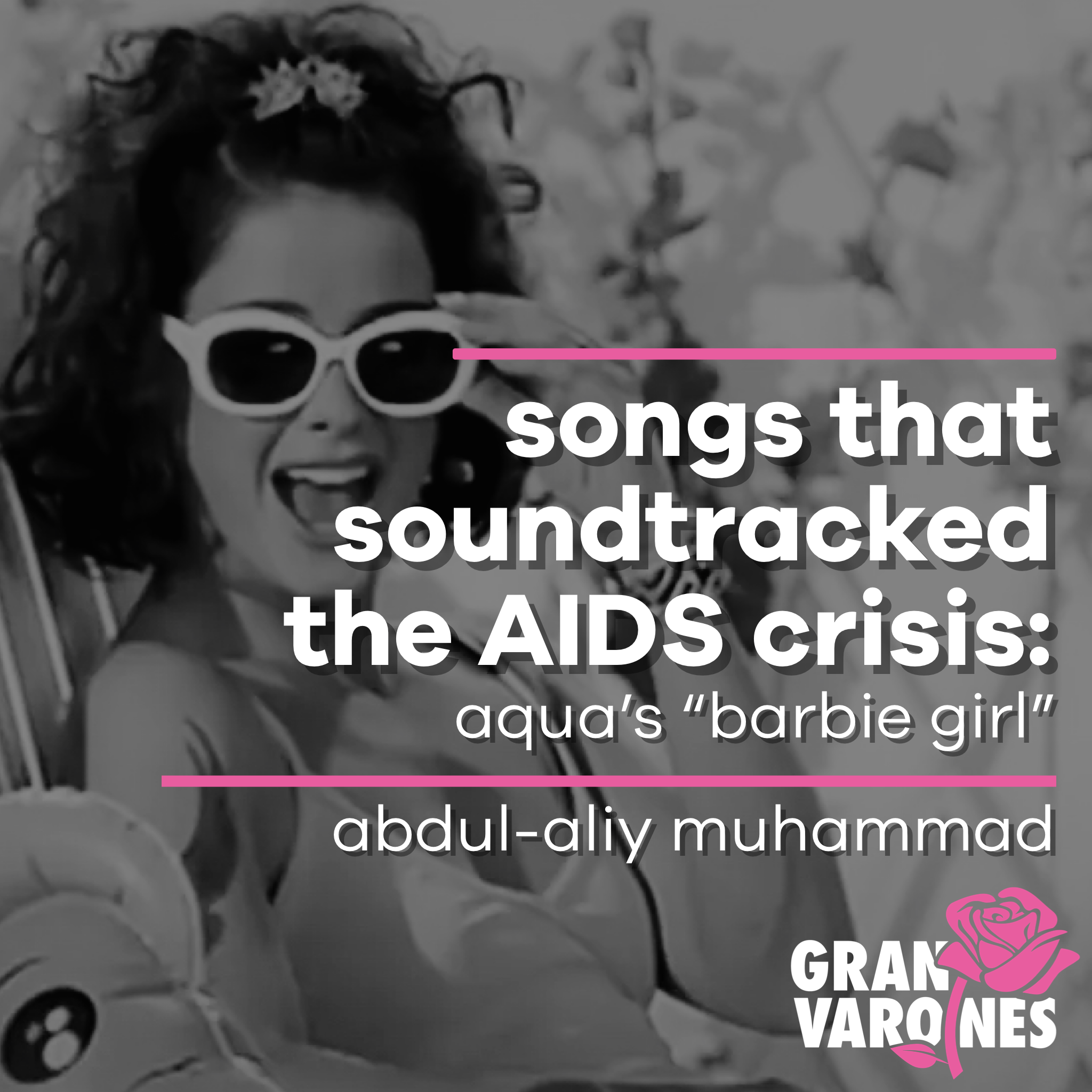The first time I heard the euro-pop sensation Aqua’s Barbie Girl was in the summer of 1997, at a party We The People organized in Clementon Park, New Jersey. The DJ was mixing bona fide house hits with contemporary jams. I remember this so vividly because I watched someone do “hand performance” to the song that was a newly minted hit. This was also one of those moments that I definitely knew I was gay because I felt like Barbie Girl was composed for LGBTQ folks; not sure how I came to that conclusion, but it just felt gay. I was 13 years old, journeying through puberty and trying to understand myself, but I recognized the subtle ways queer culture could be found in pop music. And now, more than 25 years since I first heard Barbie Girl, it remains a song that resonates and reminds me of what is remembered, who has gone, and the richness of their lives.
We The People was an AIDS service organization in Philadelphia, serving the most vulnerable HIV positive community, and my mother Melody E. Beverly worked there. Most of the organization’s service population was Black and brown people, people who inject drugs, and housing-insecure people with an AIDS diagnosis. It had a brick-and-mortar building at the corner of Broad and Lombard Street. Now a Taqueria with its own controversial history, at the end of the 1990s, it held precious work of caring for the community, with housing units atop, with an industrial-style kitchen. I remember this because I loved volunteering with building residents, preparing and cooking meals. I also had a thing for the biscuits that were often there.

On a hot day in the summer of ‘97, my mother and I arrived to begin boarding a bus to head over to the party at Clementon Park, which also included barbeque. While waiting to board the bus, I overheard Curtis speaking to a Black man who seemed exhausted if he had been taking AZT. This was a year after HAART was established as a standard for HIV care, and people were taking what we now know to be toxic medicine to manage their HIV. The introduction of highly active antiretroviral therapy, or combination therapy, would mean that people who had been living with HIV could live longer lives. I always think about that moment of Curtis checking in with a community member about his health when navigating my own care. I still appreciate the way it was normalized as a communal approach to medicine adherence. Curtis was my mother’s supervisor. He was a charismatic Black gay man with a bald head. Curtis was the sweetest and most sincere person. He was also a drag performer, I had seen him perform for a holiday party and was in awe of him.
Aqua, a Danish musical group, released their single Barbie Girl in April 1997, from their debut album Aquarium that was released in March of the same year. The track has a synth-pop-house vibe to it, with bubblegum vocals from lead singer Lene, who plays Barbie in the music video for the song. René, another band member, plays Ken, in a campy and hilarious capture of a Barbie world; it does a beautiful job of both bringing humanity to a plastic doll and making the cringey nature of American consumerism visible in a funny way. This is ironic, because during a 2017 interview for Nylon Lene disclaims its politics and sexist overtones by stating that “it was kind of making fun of the Pamela Anderson kind-of girl” and says the song is “super-innocent.” To me, Barbie Girl now appears to be making a statement about bodily autonomy and misogyny. With the incessant lyric, “I’m a Barbie girl, in a Barbie world.” This song makes me think about people who lived with HIV, like Curtis, who were living full and flourishing lives at a tender and promising point in the ongoing AIDS crisis.
Barbie Girl topped global charts and was part of a musical era that included the resurgence of unapologetic bubblegum pop music, led in part by the Spice Girls’ Wannabe, a year earlier. Barbie Girl peaked at number 7 on the US Billboard Hot 100.
Now the song has a new life in the context of Barbie, the anticipated movie featuring Margot Robbie as the title character original Barbie. Barbie World, a rap track by Nicki Minaj & Ice Spice for the Barbie soundtrack, samples Barbie Girl in a perfect way. I’m most certain Barbie Girl will have a second life on TikTok and a new generation will be embraced by the gummy-gayness of late nineties music, and remember that there were people who existed then, plagued by an epidemic that rendered their stories untold. They too are Barbie Girls, even in their afterworlds, they paved the way for us to live fantastically in the skin we’re in.
Signed, a Barbie Girl from the nineties.
I’m always yours Xx
Abdul-Aliy Muhammad ( @mxabdulaliy )
They/Them/Thiers
gran varones Mentor
Philadelphia, PA

Leave a Reply